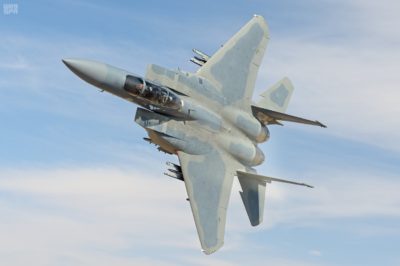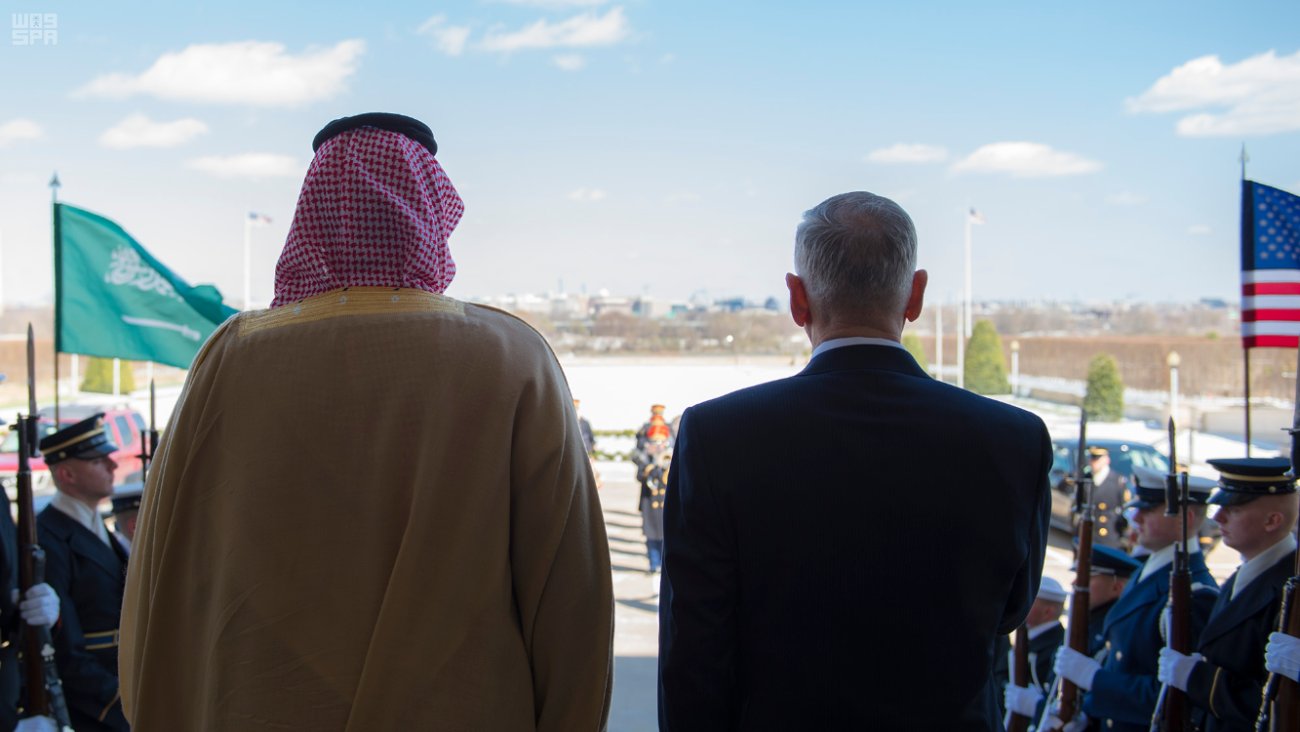Two months after the inauguration of President Trump, indications are mounting that the United States military is deepening its involvement in a string of complex conflicts in the Middle East – including in Yemen – that lack clear endgames, the New York Times reports in a detailed look at U.S. escalation in regional conflicts.
According to the report by Ben Hubbard and Michael R. Gordon of the Times, The U.S. “launched more airstrikes in Yemen this month than during all of last year. In Syria, it has airlifted local forces to front-line positions and has been accused of killing civilians in airstrikes. In Iraq, American troops and aircraft are central in supporting an urban offensive in Mosul, where airstrikes killed scores of people on March 17.”

A Saudi air force fighter jet.
However, top military brass quoted by the New York Times said the change actually came under President Obama, making it easier for commanders in the field to call in airstrikes without waiting for permission from more senior officers.
This week, the Wall Street Journal reported that the Trump administration has “significantly increased” military support for the Saudi-led coalition fighting al Qaeda and Iranian-backed militias in Yemen, raising the stakes in that conflict. American support now includes “greater intelligence and logistical support for the militaries of Saudi Arabia and the United Arab Emirates,” the paper said, citing unnamed officials.
These reports come just two weeks after Saudi Arabia’s Deputy Crown Prince and Minister of Defense Mohammed bin Salman visited Washington, D.C. and met with President Trump for a working lunch, and met at the Pentagon with Defense Secretary Jim Mattis. The prince “discussed the security environment in the Middle East, to include confronting Iran’s destabilizing regional activities, and U.S.-Saudi Arabia military cooperation in defeating ISIS and other transnational terrorist organizations” with Mattis, according to a DOD statement.
Earlier in March, the U.S. State Department’s approval of a resumption of weapons sales to Saudi Arabia that would reverse a decision by President Obama amounted to “a potential sign of reinvigorated U.S. support for the kingdom’s involvement in its neighbor’s ongoing civil war.”
The increase in support for Arab allies in the region is welcomed by Saudi Arabia, which sees a shift toward a harder line against Iran as a critical element in the U.S.-Saudi “reset” of relations under President Trump.









